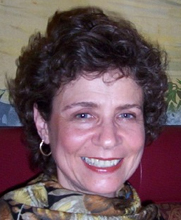|
|



Questions & Answers - October 2003

|
Mary C. Fridley, RN,C is a registered nurse certified in gerontology with more than twenty years in the geriatric health field. She is the owner of Gero-Resources specializing in caregiver, eldercare, and successful aging education and advocacy. Mary is also an author of two caregiver advice columns and contributes articles to various websites. She is available for speaking engagements and would be happy to answer your questions or concerns while maintaining your anonymity.
About Mary
Mary's Column Archives: Caregivers'
Questions & Answers
|
Dear Mary,
I am the sole caregiver for my 86 year old mother who is currently living alone. There are care workers coming in twice a day to help prepare meals and give medicine. Recently she was deemed a safety risk to remain at home alone. She has been on a waiting list at a care facility and I got a call that they have a vacancy. I am now scared and beside myself as to how to get her to go to the facility. She has lung cancer and weighs 63 pounds but doesn't think she has anything wrong with her. Mother still smokes and will have to quit "cold turkey" when she is admitted. Our family doctor said to put her on the patch, but I'm sure she will still suffer some withdrawal. Should she be medicated prior to going in? How do I tell her where I am taking her? She will hate me forever saying it's my fault. I am so upset, I wish I had some advise on how to make this transition smooth. Can you help me?
Any way you look at it the transition is going to be rough. The best approach is honesty - tell her you love her and are doing this for her own safety. Yes, she'll be angry, but what's the alternative? Step-back from her anger and understand that sometimes things just are, and difficult decisions have to be made.
As for smoking, continuing to smoke even with lung cancer is a choice she makes. As much as we would like our loved ones to live healthfully, it’s not always within our control. At this stage of the game she may not be a good candidate for quitting. Most facilities allow residents to smoke in designated areas, so she can still smoke, just not indiscriminately. But if she uses the patch she and the staff will have to understand that she can't smoke while wearing it. Talk to her physician about withdrawal effects and whether a low dose anti-anxiety medication would help.
Good luck and let me know how you make out.
Dear Mary,
My brother has PSP, which I’m told is like Parkinson’s disease. I live several hours away but call every week and it seems he needs more help every time I call. I’m worried about his wife. She has good support from their children but hasn’t had a day off in a year. She sounds so tired and depressed that I’m concerned she will fall ill, too. How can I help her? I’m also concerned that it is hereditary and I might get it. Should I worry?
Dear Reader,
PSP is the abbreviation for progressive supranuclear palsy. It is a degenerative disorder that shares some signs and symptoms with Parkinson’s disease like balance and walking difficulty. But the telltale sign is the inability to coordinate eye movements. Dementia and mood swings, for no apparent reason, are also associated with it. According to the National Institute of Neurological Disorders and Stroke, the cause is unknown and heredity factors have not been identified. It is a rare disorder that is less common than Parkinson’s disease and effects more men than women.
It’s important that your brother’s wife be nurtured to remain healthy in body, mind, and spirit and she’s fortunate to have a caring sister-in-law like you. You can help her by offering to stay with him while she gets away for a much-needed vacation, or arrange with her children for her to visit you for a few days. Financial help or even a gift of a weekly housekeeper may also be appreciated. Extra money to purchase home care and alleviating the burden of housekeeping chores will free up some of her time and conserve her energy.
For more information and support please contact The Society for Supranuclear Palsy, Inc. at 1-800-457-4777 or www.psp.org.
Dear Mary
Most of what we hear about caregiving is related to dementia. But there are many caregivers helping loved ones affected with other diseases. Why all the hubbub about dementia when cancer is a much bigger problem and why do you write exclusively about it?.
Dear Reader,
Yes, cancer is more prevalent than dementia, but dementia is a rapidly growing problem. A recent report from the Harvard Medical School estimated that 1 in 8 people over the age of 65 were affected by Alzheimer’s disease alone in 1999, and those numbers are expected to grow to 1 in 5 by 2030. There is no cure or effective treatment and victims become severely incapacitated to the point of needing constant care. Also, most research on caregiver issues has been done on caring for dementia-affected persons. So, dementia is a hot topic right now.
As for answering questions – I do not exclude any caregiver questions. It just so happens that what you see is what I get.
Email Mary: info@gero-resources.com
Gero-Resources.com
Featured Experts - Main Page
It is illegal to reprint articles, in any format (including emails, websites, etc.), without explicit written permission from the author of this article and / or Empowering Caregivers™
|
|

